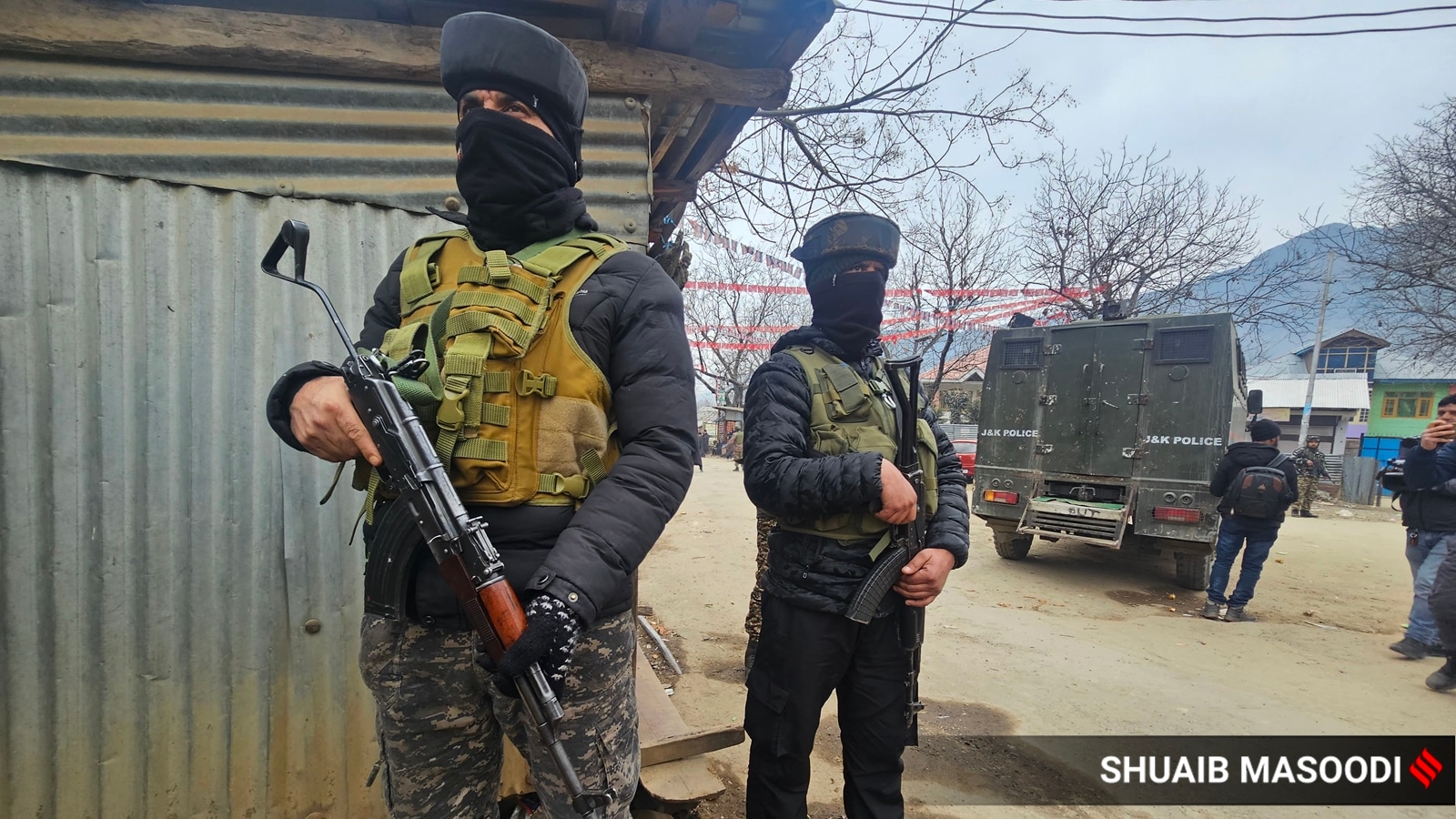 |
|
The recent killing of a retired soldier in south Kashmir has triggered a large-scale security operation by the Jammu and Kashmir Police, resulting in the detention of over 500 individuals across the Kashmir Valley. This unprecedented crackdown, according to senior police officials, serves as a strong message to militants operating from across the border, signaling that such attacks will not be tolerated. The scale of the detentions is described as unprecedented in recent times, highlighting the severity of the situation and the authorities' determination to curb further violence. The targeted individuals include a significant number of relatives of Kashmiri militants based in Pakistan and Pakistan-occupied Kashmir (PoK), indicating a deliberate strategy to disrupt militant networks and their support systems. This approach represents a significant escalation in the conflict, moving beyond the previously employed tactic of seizing the properties of Pakistan-based militants.
The attack itself involved unidentified gunmen who opened fire on retired soldier Manzoor Ahmad Wagay, his wife, and niece in Behibagh village, Kulgam. Wagay, 45, succumbed to his injuries, while the women sustained leg wounds and are receiving medical treatment. The police have characterized the attack as a crossing of a 'red line,' given that the target was not only a former soldier but also his family members. This targeting of family members signifies a new level of brutality and underscores the escalating tensions in the region. The incident has sparked outrage and renewed concerns about the security situation in Kashmir, prompting the authorities to take swift and decisive action in the form of mass detentions.
The mass detentions raise significant questions regarding human rights and due process. While the police justify the actions as a necessary measure to deter future attacks and maintain peace, critics argue that such widespread detentions without sufficient evidence could lead to abuses and violations of fundamental rights. The potential for collateral damage, impacting innocent individuals, also raises concerns about the long-term consequences of this approach. The international community may also scrutinize these actions, particularly given the history of human rights issues in the region. The effectiveness of this strategy in the long run remains to be seen, and there is potential for it to backfire and further inflame tensions, potentially leading to increased radicalization and retaliatory attacks. Further investigation and analysis are crucial to evaluating the overall impact of this controversial measure.
The situation in Kashmir remains complex and volatile, marked by decades of conflict between various groups. Understanding the underlying causes of the conflict and addressing the root issues is essential for finding lasting peace and stability. The mass detentions, though presented as a deterrent, represent a short-term reactive measure. A more comprehensive approach that tackles the underlying issues, such as poverty, political grievances, and historical injustices, is crucial for long-term stability and peaceful coexistence. This may involve engaging with all stakeholders through dialogue and negotiation, fostering inclusive governance, and promoting economic development and opportunities for all communities in Kashmir.
Furthermore, the international community has a vital role to play in supporting efforts towards peace and reconciliation in Kashmir. It can facilitate dialogue between the involved parties, provide humanitarian assistance, and advocate for human rights. The mass detentions highlight the need for a stronger international focus on human rights in the region and the importance of ensuring that security measures do not come at the expense of fundamental freedoms and human dignity. A sustainable solution to the conflict requires a multi-pronged approach that addresses both the immediate security concerns and the long-term political and socioeconomic needs of the region. Only then can there be a genuine hope for lasting peace and stability in Kashmir.
